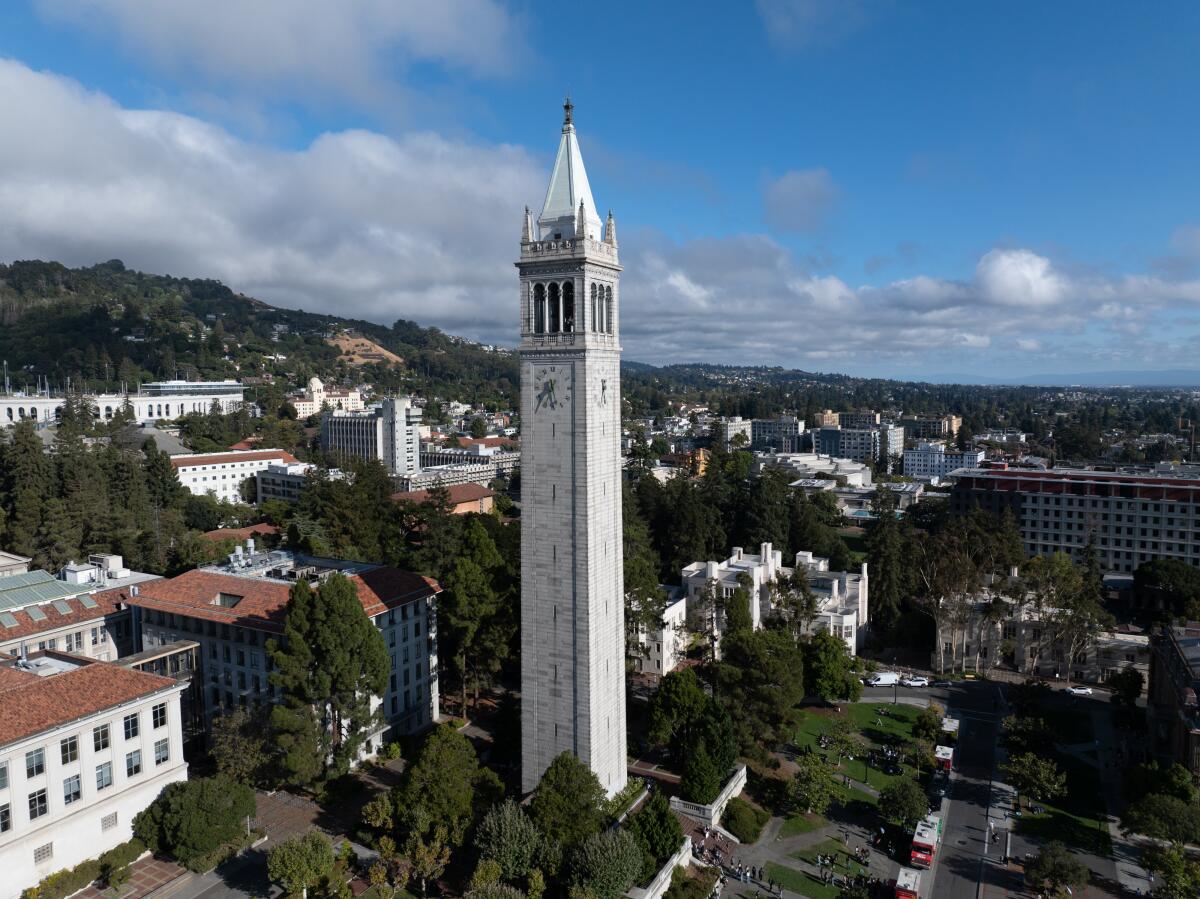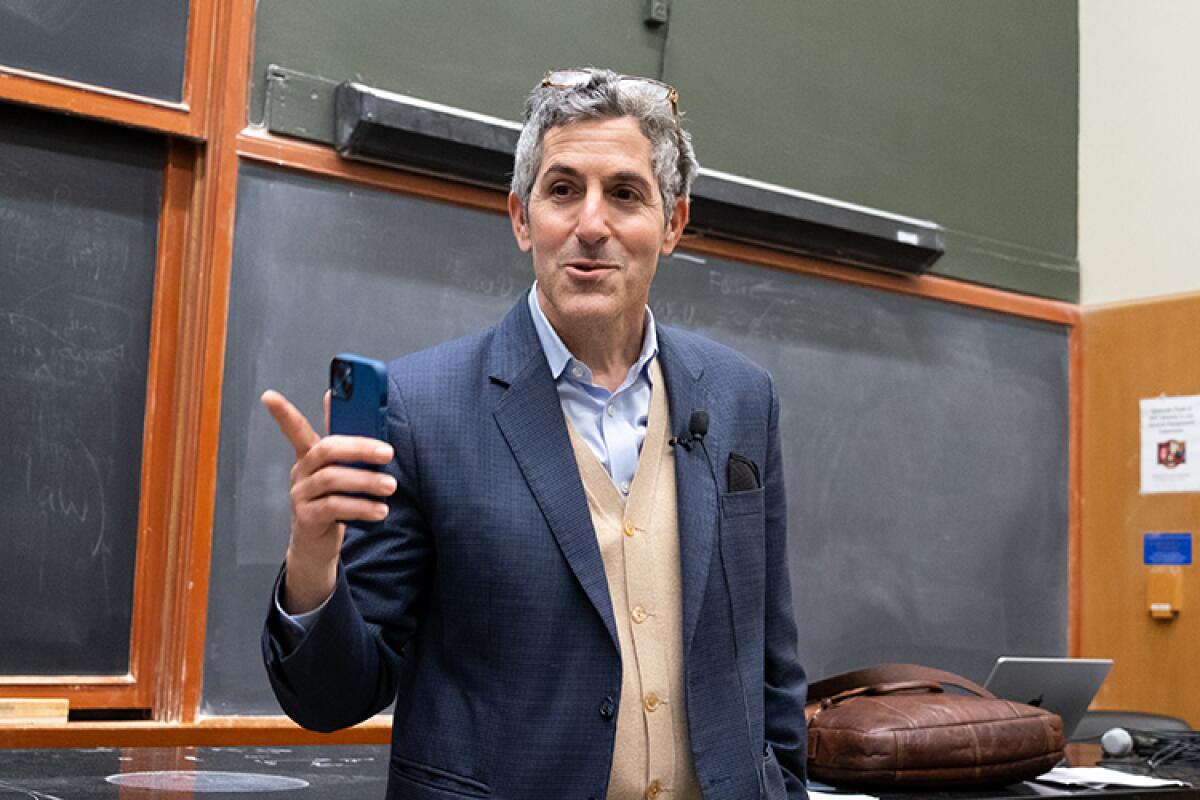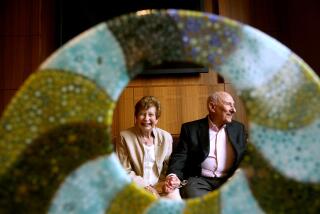UC Berkeley launches one of the nation’s few Palestinian-Arab studies programs amid demand

UC Berkeley will launch a new endowed program and chair in Palestinian and Arab studies, one of the few in the nation, as the Israel-Hamas war has fueled huge demand to better understand the history, culture and politics of the people of the region.
Ussama Makdisi, a UC Berkeley history professor and leading scholar of modern Arab history for nearly three decades, was named the inaugural chair. He said the program represents a groundbreaking effort to build understanding about the Palestinian people, who are often portrayed through the lens of the conflict with Israel, yet have a long, rich ethical and ecumenical history of their own.
He said the program, announced Monday, will allow students and scholars to explore the Palestinian people’s complex history in the context of the wider Arab world and connect it more deeply with parallel fields of inquiry with Indigenous, Latinx and Black communities.
“This is a beautiful and brilliant initiative to finally frame the Palestinians as a people with a history ... rather than reduce them to shadowy people who came out of the blue to disrupt our serenity,” Makdisi said in an interview. “They should not be taught as simply a problem or conflict but as people. Once you teach their history in context, it’s much more difficult to dehumanize them.”

A $3.25-million gift by anonymous donors led to the establishment of the program, which will fund research opportunities and cultural activities, along with the endowed chair named after May Ziadeh, a pioneering Palestinian-Lebanese feminist, poet and writer. She played a key role in the Arab cultural renaissance in the modern Middle East and personified the interconnections between Palestinians and the rest of the Arab world. She is a native of Nazareth who moved to Beirut and Cairo, the university said in a statement. The chair will be housed in the social sciences division and anchored in the discipline of history.
In support of the initiative, UC Berkeley has pledged $500,000 to bolster the program. Makdisi said he and other faculty associated with the program — who work on topics related to Palestinian and Arab history, culture, literature, society and politics — will explore the possibility of adding a minor to this field and developing other opportunities, including lectures, conferences, scholarships and fellowships.
“At a time when understanding the complexities of the Middle East is more crucial than ever, this gift allows the Social Sciences to take a leading role in fostering critical scholarship and dialogue,” Raka Ray, the division’s dean, said in a statement. “It’s an opportunity for us to deepen our commitment to outstanding scholarship; to explore important but neglected fields of study; and to build inclusive education.”
Makdisi said interest in Palestinian studies is the highest it has ever been since he began teaching it as part of Arab studies 27 years ago. His undergraduate course, “Palestine and the Palestinians: A Modern History,” was filled to capacity last spring by students of diverse backgrounds. But interest is growing not only about Palestinian history but also literature, poetry, politics, sociology and areas “across the board,” he said.
The scholar joined UC Berkeley in 2022 from Rice University, where he was the first holder of the Arab-American Educational Foundation Chair of Arab Studies. Makdisi, who has written numerous books and articles on Arab history, was awarded the Berlin Prize, which recognizes the highest excellence in various fields, and selected as a Carnegie Scholar, among other honors.
UC Berkeley’s new program is believed to be one of the few to focus on Palestinians in the nation. Columbia University’s Center for Palestine Studies was established in 2010, the first such center in a U.S. academic institution, to honor the legacy of the late Palestinian scholar Edward Said — Makdisi’s uncle. Brown University launched a “New Directions in Palestinian Studies” research initiative housed in the Center for Middle East Studies in 2012.
“Every generation grapples with this challenging history on its own terms, and every generation finds new sources, new evidence and new insights,” Berkeley history department Chair Cathryn Carson said in a statement. “UC Berkeley is ideally situated to nurture emerging scholars in Palestinian and Arab Studies and advance fresh thinking on a broad array of topics.”
The program’s inaugural conference is scheduled on Nov. 12 and 13 for scholars from around the world to discuss how to best teach and learn about Palestinian and Arab history, politics and society.
More to Read
Sign up for Essential California
The most important California stories and recommendations in your inbox every morning.
You may occasionally receive promotional content from the Los Angeles Times.











